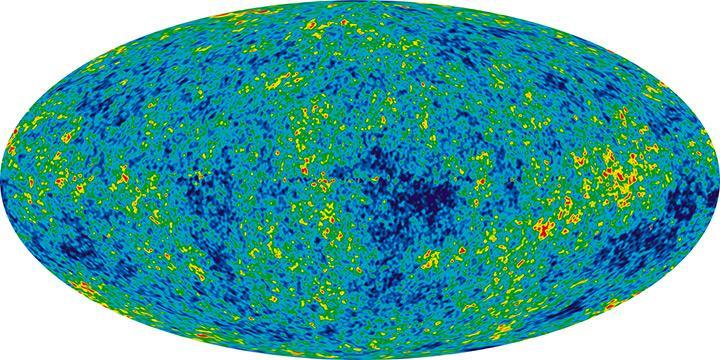Scientists win prize for 'baby picture' of the entire universe soon after it formed
The picture helped answer some fundamental questions about the universe. And opened up entirely new ones

Your support helps us to tell the story
From reproductive rights to climate change to Big Tech, The Independent is on the ground when the story is developing. Whether it's investigating the financials of Elon Musk's pro-Trump PAC or producing our latest documentary, 'The A Word', which shines a light on the American women fighting for reproductive rights, we know how important it is to parse out the facts from the messaging.
At such a critical moment in US history, we need reporters on the ground. Your donation allows us to keep sending journalists to speak to both sides of the story.
The Independent is trusted by Americans across the entire political spectrum. And unlike many other quality news outlets, we choose not to lock Americans out of our reporting and analysis with paywalls. We believe quality journalism should be available to everyone, paid for by those who can afford it.
Your support makes all the difference.It might not look like much. But that blob shows the entire universe.
And it's something like a baby picture: it shows the cosmic microwave background radiation that was left over around 380,000 years after the Big Bang. But everything in that picture became the entire universe that surrounds us now.
And now the picture has won an award that sells itself as the Oscars of science. The team who worked on NASA’s Wilkinson Microwave Anisotropy Probe, which took the picture, have been honoured with a Breakthrough Prize for their work.
The picture – and the pioneering data that was used to create it – was one of the most ambitious space projects ever launched. And after years of worked, it did work, allowing scientists to see the very beginnings of the universe in their full scale.
It went on to help solve many of the most fundamental questions of the universe, including moving us towards an answer to where it all came from. But it introduced new mysteries, like the fact that only five per cent of the universe is only made up of the kinds of matter we know about.
The award, of course, wasn't just for the picture. That was the end product of a years-long process that saw an international team build a satellite, launch it into space, use it to gather huge amounts of data about the universe and sort through everything it brings back – the picture was a way of presenting that work to the general public.
The data itself helped confirm the standard model of cosmology, and its various stunning consequences alongside it, including the fact that the vast majority of the universe is made up of dark energy and dark matter and not the ordinary matter that surrounds us. It showed that the universe is 13.7 billion years old, and that only five per cent of it is made up from the elements in our own period table.
The researchers have gone on to use it to write a number of different papers. And it has helped inform much other work, too, including scientists who are trying to understand the very beginnings of our universe.
The Breakthrough prizes and awards show were set up in 2012. They were established with the aim of giving the science world some of the glitz and sparkle of the Oscars – and they succeeded this time around, with a grand ceremony in Silicon Valley.
The 27-person team who worked on the picture will share the $3 million prize money between them. They took the fundamental physics prize, with other winners taking home awards in categories like maths.
Join our commenting forum
Join thought-provoking conversations, follow other Independent readers and see their replies
Comments